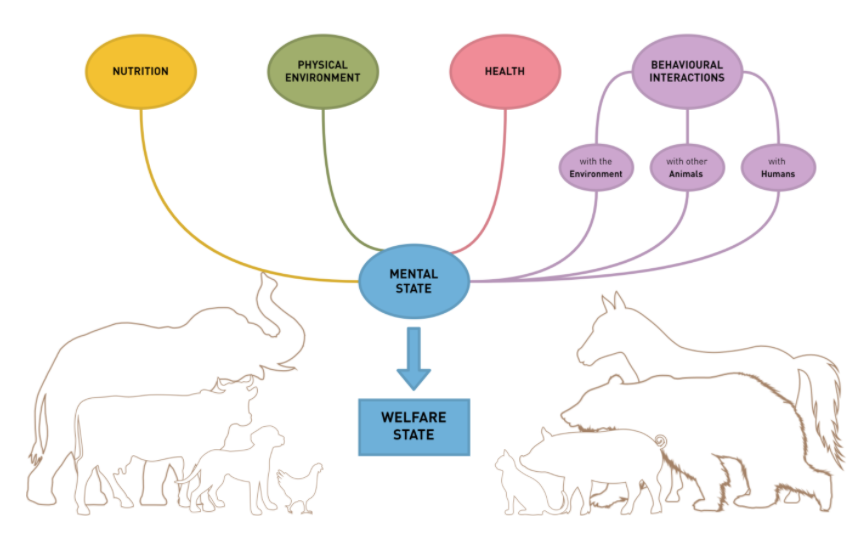December 2021
At FOUR PAWS we have adopted the new Five Domains model for assessing animal welfare, over the old Five Freedoms model, and we want to explain why all in animal welfare should be making the same move.
The Five Freedoms model of animal welfare was developed back in the 1960s and has shaped the development of animal welfare standards globally for decades. Internationally recognised, the Five Freedoms consist of freedom from hunger and thirst, freedom from discomfort, pain injury or disease, freedom to express normal behaviour and freedom from fear or distress.
The newer and evolved Five Domains model contains essentially the same elements as the Five Freedoms model but has a greater focus on the mental state of an animal – basically how the animal ‘feels’ - and acknowledges that welfare can be both positive and negative.
The Five Domains model explores the mental state of an animal in more detail and recognises that for every physical aspect that is affected, there may be an accompanying emotion or experience that may also impact the animal’s welfare. This reinforces the message that emotional needs are equally important as physical needs for animals.
The table below outlines the core differences between the Five Domains and the Five Freedoms:
One of the great strengths of the Five Domains is its acknowledgement that simply minimising or resolving negative physical or mental states does not necessarily result in positive welfare, but may only provide, at best, a neutral state. For animals to have a good quality of life, we need to go beyond minimising negatives to also focus on providing them with a life that is filled with positive mental experiences.

The figure above illustrates that the welfare state of an animal is the subjective mental state, which in turn is generated by the four other domains (nutrition, environment, health, and behaviour) that influence an animal’s quality of life.
The Five Domains consider an animal’s psychological needs as well as physiological needs, meaning that we can place greater emphasis on providing opportunities for animals to engage in activities that provide positive experiences.
We hope that this overview gives you a good insight into why we need to evolve our approach to animal welfare assessments and adopt this new scientific approach to ensure good animal welfare. For more information you can reach out to FOUR PAWS UK at office@four-paws.org.uk.
Daisy Sopel is Campaigns Assistant at FOUR PAWS UK
Follow @FourPawsUK
The opinions expressed in this blog are the author's and not necessarily those of the wider Link membership.




Latest Blog Posts
December 2021



Latest Blog Posts